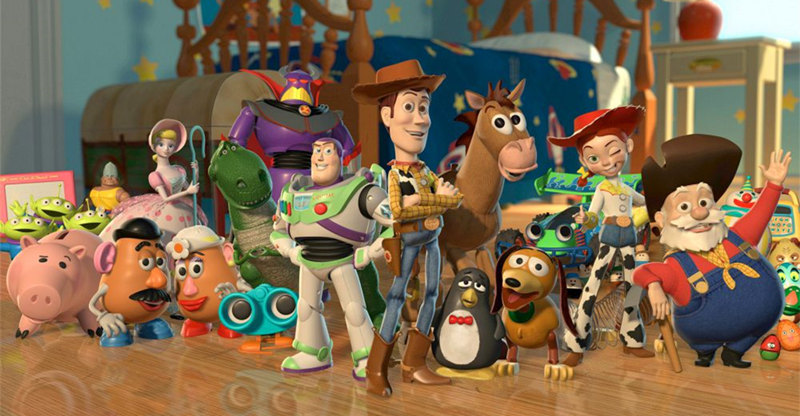At about the same time, two different studios released films on Blu-ray about urban angst, 2002’s “Changing Lanes” and 1993’s “Falling Down.” Of the two, “Falling Down” has the better, more plausible story, and it holds up pretty well today, even if its tone meanders all over the place. However, whether it really deserves a high-definition, high-profile Digibook presentation ahead of other, more visually and aurally appealing films I find open to question.
Joel Schumacher directed “Falling Down,” one of the better films in a career that has seen as many misses as hits. Consider “St. Elmo’s Fire,” “The Lost Boys,” “Cousins,” “Flatliners,” “Dying Young,” “Batman Forever,” “The Client,” “Batman & Robin,” “A Time to Kill,” “8MM,” “Tigerland,” “Phone Booth,” “The Phantom of the Opera,” and “The Number 23.”
If there’s any issue with “Falling Down,” it’s that audiences may be divided about how to interpret it. Is the main character a hero or a villain? Certainly, a villain in my mind, no matter his motivation. Yet apparently a lot of folks applauded this man driven over the edge into violence. Remember Sidney Lumet’s “Network,” where the Peter Finch character was “mad as hell” and wasn’t going to take it anymore? Audiences cheered this fellow for standing up against a mindless bureaucracy and an indifferent public. But do you really root for a guy who takes a gun and goes on a shooting spree because he feels the pressures of the world closing in on him?
Be that as it may, star Michael Douglas puts in a bravura performance as the central figure, Bill Foster, a jobless L.A. defense worker who finds himself pushed further and further to the edge and one day simply snaps. He’s a high-strung man to begin with, but when his plant fires him, his wife (Barbara Hershey) leaves him, taking their little girl with her, and he has to go back to living with his mother, he finally flips out. Finding himself stuck in traffic in East Los Angeles on a hot, stuffy day, he abandons his car and sets out for “home.” We can see he’s had it and is heading for trouble.
However, neither director Schumacher nor screenwriter Ebbe Roe Smith makes it clear how they want us to feel about Foster. Most of the guy’s encounters throughout the film are amusingly sardonic, even when he’s blowing people away. I mean, who hasn’t wanted to do something drastic to the guy who cuts us off on the highway or the idiot on the cell phone during a movie? Foster does drastic things about the minor injustices he sees around him. Like, when he finds a construction crew has torn up a perfectly good roadway for no apparent reason, he rectifies the situation with a rocket launcher. I mean, the movie plays like a black comedy much of the time; right up until the ending, that is, where it turns deadly serious. So, what’s going on here? If the filmmakers had established a more consistent tone, it would have helped immensely.
Anyway, Foster didn’t just fall over the edge instantly. We learn he always had a simmering anger building up in him from childhood. Thus, it rather diminishes the film’s symbolism as Foster being representative of life’s vicissitudes toppling the common man because Foster is hardly a “common” man. He’s a quiet, moody, excessively fastidious, nerdy guy, who might have shot up a post office in the middle of any idyllic small town as well as a big city.
The first person Foster encounters after leaving his car (and former life) behind is a Korean convenience-store owner, who feels Foster’s wrath because he doesn’t speak English well enough and because he charges today’s higher prices for things Foster remembers costing a lot less in his youth. Foster goes berserk and breaks the place apart.
Next, he comes upon two Hispanic thugs who make the mistake of picking on him. He beats them with a baseball bat. They retaliate by getting a few of their friends and tracking him down, only to fail again. Foster winds up with a gym bag full of weapons.
The whole film is this way, filled with ironies. Certainly, the filmmakers are satirizing all the troubles and discomforts we find in city living, the diversity of the population, the high prices, the traffic congestion, the flaring tempers. Yet at the same time, they exaggerate these problems to such an extent, it makes them appear more trivial and more comical than justifies the violence they precipitate.
As Foster wanders around town trying to find his way to a home that is no longer his, he’s a walking time bomb, becoming more paranoid by the minute. It doesn’t help that as part of the movie’s exaggeration, everybody he meets is rude to him. Just getting breakfast in a fast-food joint is a chore. “We stopped serving breakfast at 11:30,” says the manager. It’s 11:33. Or that almost all the cops in the movie are idiots.
The exception to the cop rule in the movie is Detective Martin Prendergast, played by co-star Robert Duvall. For reasons unknown, the film gives his story almost as much attention as Foster’s. It further dilutes the black humor as well as the seriousness of the tale. Prendergast is on his last day with the force, but he’s also the first one to figure out that Foster is on a killing spree, and with his old partner, Det. Sandra Torres (Rachel Ticotin), they follow Foster’s deadly journey. Tuesday Weld plays Prendergast’s wife as a nagging, hypercritical, middle-aged shrew, who used to be a raving beauty and hasn’t accepted the idea of getting older very well.
Then, there’s Nick (Frederic Forrest), the racist, skinhead owner of a war-surplus store specializing in Nazi paraphernalia. The film leaves no stone unturned.
“Falling Down” is, indeed, an odd film, filled with contradictions. Perhaps the filmmakers meant for the contradictions to mirror the main character, his bizarre actions, and our own peculiar society. Nevertheless, the film leaves one either cheering or jeering in equal measure, which I’m not sure was the filmmakers’ intent.
Video:
An oddity: Warners went to all the trouble of providing the movie with a deluxe Digibook package and then squeezed the film and the extras onto a single-layer BD25. Maybe they figured the movie didn’t have enough color or pizzazz in it to justify using any more disc space. I dunno. Be that as it may, the VC-1 encode probably does the best job it can capturing the film’s rather subdued 2.40:1-ratio picture. The fact is, the image looks soft, warm, dull, brown, and dusty, just like the life of its main character. Therefore, I suspect that any shortcomings you see in the video are a result of the original print. Definition, for instance, varies from excellent to fuzzy. Some shots are crystal clear, and others look veiled. Fortunately, it doesn’t appear the engineers tried to do anything to eliminate the film’s natural grain (and L.A.’s unnatural smog), so you probably get pretty much what audiences saw in a theater.
Audio:
Often, studios will remix a two-channel stereo soundtrack in 5.1, but not here. We get a 2.0 track only. At least Warner Bros. have reproduced it in lossless Dolby TrueHD, so it sounds firm and smooth. And at least they make TrueHD the default, so you don’t have to remember to switch over at the beginning of the film. If your equipment can’t handle lossless audio, there is also the mandatory Dolby Digital on hand. In any case, there’s not much going on sonically, with no more surround activity than your receiver can simulate and a fairly constricted dynamic range and high-end frequency response. Bass is the soundtrack’s strong suit, deep and taut when called upon, and a realistic midrange.
Extras:
The main thing here is an audio commentary by star Michael Douglas, director Joel Schumacher, screenwriter Ebbe Roe Smith, editor Paul Hirsch, and others. It sounds a little fragmented, but the comments are worth noting. Of secondary interest is a ten-minute, 2009 featurette, “Deconstructing D-Fens: A Conversation with Michael Douglas,” wherein the actor looks back on the film and how people reacted to it.
In addition, there are thirty-three scene selections; a widescreen theatrical trailer in a 1.78:1 ratio; English, French, Spanish, Italian, and Portuguese spoken languages; French, Spanish, Danish, Dutch, Finnish, Italian, Norwegian, Portuguese, and Swedish subtitles; and English captions for the hearing impaired. What’s more, because this is a Blu-ray Book edition, we get thirty-eight pages of fully illustrated text in a hardbound Digibook package, the disc fitting into the back cover.
Parting Thoughts:
The pressures of everyday life, especially in a big city, can get to all of us. Still, we don’t usually grab a gun and terrorize the community. The thing is, even though “Falling Down” never makes its motives entirely plain and too often makes us root for rather than against the main character, it’s never less than fascinating or entertaining as it unfolds. If Schumacher had exercised a tighter rein over what he wanted the movie to be, it might have become a genuine classic instead of another interesting but flawed motion picture.
“I’m the bad guy? How’d that happen?”


